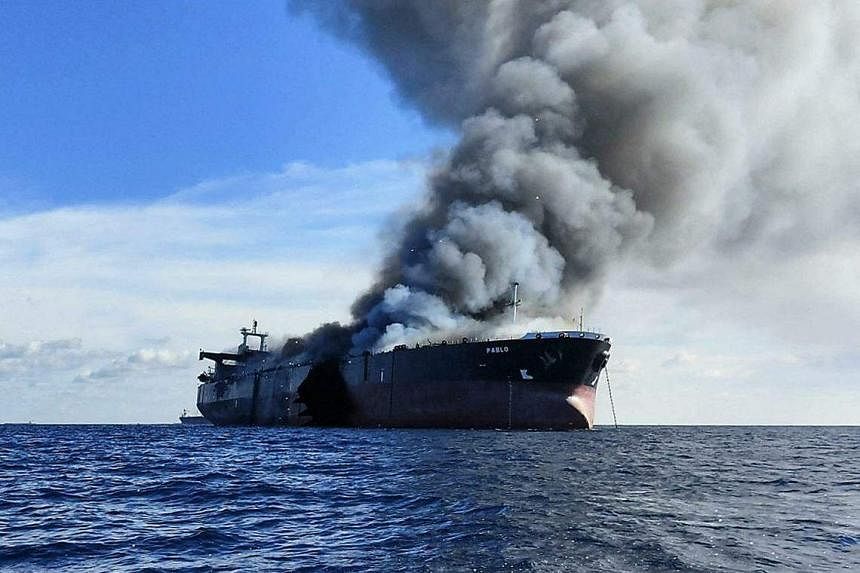Global Courant 2023-05-07 07:30:00
PULAU TINGGI, MALAYSIA — Off the coast of Malaysia, in one of the world’s busiest shipping channels, an explosion aboard the aging oil tanker Pablo ripped its deck loose like a sardine can, sparking a fire that sent plumes of dark smoke skyward.
The tragic accident on May 1 could have been a much bigger catastrophe. The Gabon-registered vessel, which can carry about 700,000 barrels of crude oil, was passing through the South China Sea after unloading a cargo in China – and was thus running low on fuel. Of the 28 international crew members, officials report that 25 were rescued by passing ships. The blast occurred just beyond Singapore’s congested waters.
But for the nearby maritime authorities, the headache has just begun. There is little evidence of the owner, a Marshall Islands registered company whose fleet contains no other vessels and no trace of insurance. Both are vital for a cleanup to begin with.
De Pablo, an Aframax-class crude oil tanker sighted in Iranian waters in 2022, underscores the risks associated with expanding a dark fleet of aging vessels carrying sanctioned oil around the world.
Since the wave of sanctions that followed Russia’s invasion of Ukraine — including the price caps imposed by the Group of Seven, designed to limit oil money going back to the Kremlin — oil trade observers have reported the purchase of hundreds of old tankers by unknown buyers. .
With limited details on who is responsible for this ship, there is no one to hold accountable as it burned down just 40 nautical miles off Malaysia’s Pulau Tinggi Island. Oil, possibly from the wreck, has been reported washing up on the Indonesian coast.
“The Pablo victim is tragic and a stark reminder of what we’ve been saying all along: The Shadow Fleet poses a serious threat to both human life and the marine environment,” said Mr. Rolf Thore Roppestad, CEO of Gard AS, the largest of the protection and indemnification clubs that insure a large part of the world’s fleet against risks such as oil spills.
“What worries me is that there are ships like this passing through busy straits every day,” he added. “So the likelihood of more accidents like this happening is quite high.”
The cause of the fire is still unclear, but fumes from the remains of the oil cargo may have played a role. Either way, when ships like the Pablo blow up, the process of cleaning up the mess gets harder. Often, insurance companies, salvage companies and various intermediaries begin handling the situation within hours.
But nearly a week after this explosion, there’s little sign of the insurer getting the process moving. De Pablo is not listed in any industry database of insured vessels, and the Malaysian Maritime Enforcement Agency did not answer questions about insurance.
In cases where the shipowners are unknown, local authorities will often press the crew for more information, as they are one of the few people who know where a ship’s orders come from. It is not clear whether this was successful.
If the owner cannot be contacted, local authorities may seize the vessel and attempt to cover costs, said Mr Oon Thian Seng, founder of Singaporean law firm Oon & Bazul and associated Malaysian firm, TS Oon & Partners. .
However, it is highly unlikely that selling what’s left of the charred Pablo would cover the disposal costs.
The dangers of de Pablo, and others like him, are clear from his history. The tanker sailed under the flag of Gabon, a very small ship registry destination and outside of something called the Paris Memorandum of Understanding, which was created to promote safe shipping. It was built in 1997, which means it is much older than the age when most tankers are sold for scrap.
Moreover, if de Pablo had been loaded with his most recent cargo, that would have been a major oil spill cleared by the United States.








